Common Assessments HR Departments Use to Test Job Skills
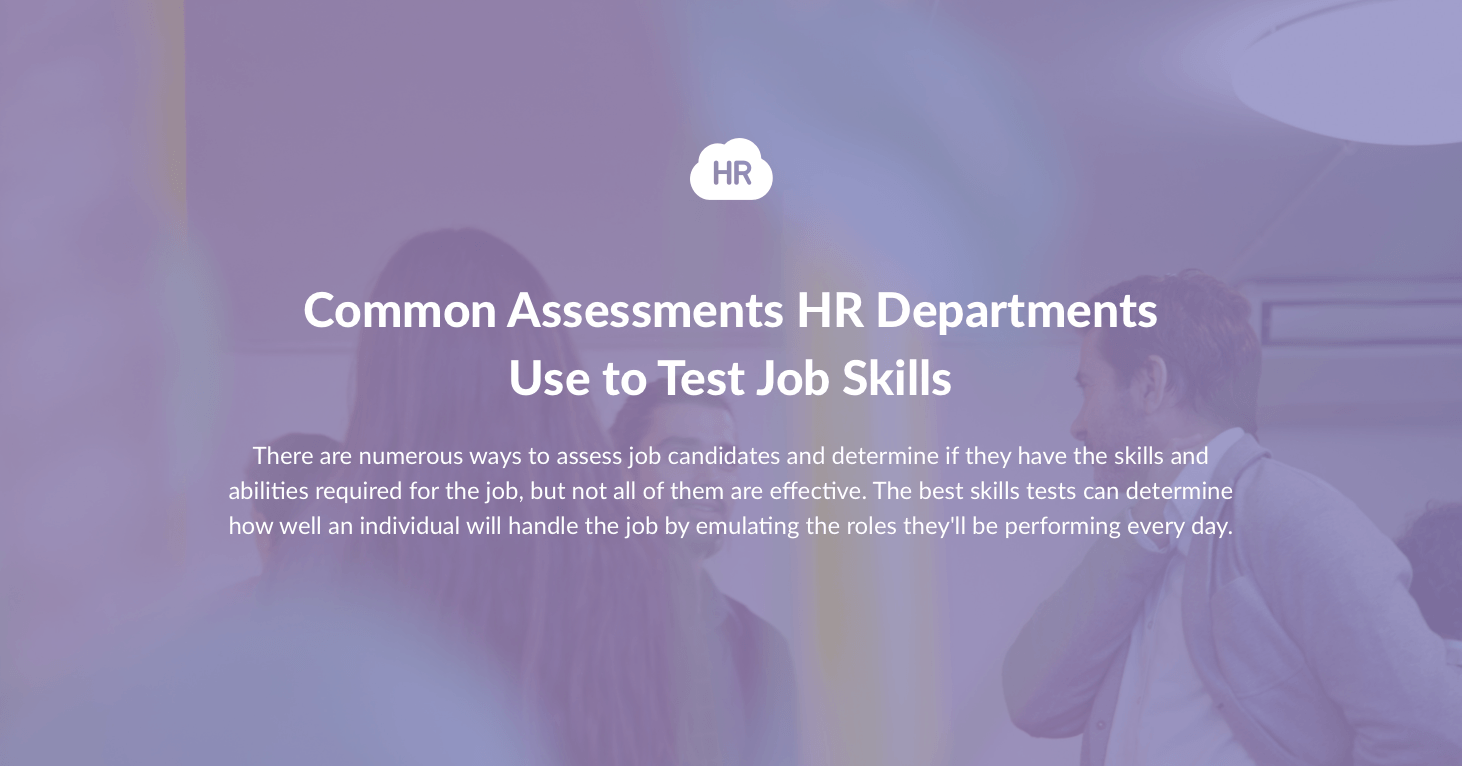
- 1. Organizational Skills Assessment
- 2. Time Management Assessment
- 3. Communication Skills Assessment
- 4. Assessment for Software Use Skills
- 5. Problem-Solving Skill Assessment
- 6. Critical Thinking Assessment
- 7. Leadership Skills Assessment
- 8. Technical Skills Assessment
- 9. Personality Assessment
- 10. Job-Specific Assessment


 Cut onboarding time
by 60%—here's the
Ultimate Checklist
that helped do it.
Cut onboarding time
by 60%—here's the
Ultimate Checklist
that helped do it.

There are numerous ways to assess job candidates and determine if they have the skills and abilities required for the job, but not all of them are effective. The best skills testing methods can determine how well an individual will handle the job by emulating the roles they'll be performing every day.
While you might think you’re ready to take on any HR hiring assessment, the truth is that there are many different types of pre-employment tests that companies use to vet job applicants. These skill assessment tests come in many different varieties and can evaluate a wide range of skills. Let's take a quick look at the most common assessments HR departments use to screen and hire the best candidate.
1. Organizational Skills Assessment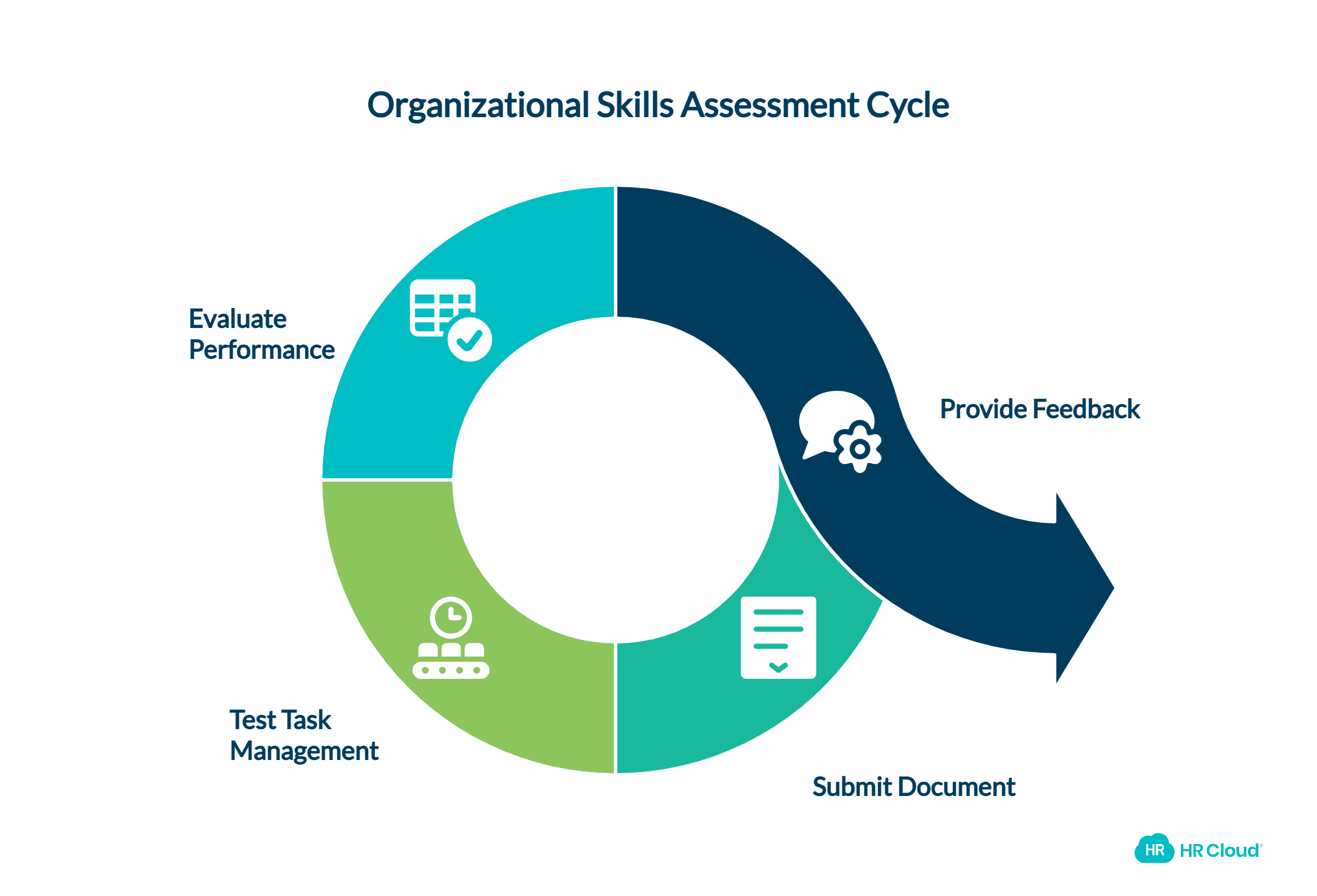
Organizational skills are fundamental in today's fast-paced, results-oriented work environments. They help determine whether a job applicant can get things done without being asked, or by staying organized enough that there is no need to ask. Hiring managers usually test organizational skills in various ways. You might be asked to submit a document you've previously worked on that shows evidence of your organizational skills (such as an academic paper).
An organizational skills test will also challenge job applicants on their ability to keep track of several different items in a short period. This is often done with paperwork, office supplies, or other similar objects. The goal is to see how quickly candidates can locate these items and return them in an organized fashion within a set amount of time, demonstrating their task management skills.
2. Time Management Assessment
For businesses, time spent on employees not performing effectively or efficiently is a waste of resources. When hiring a new employee, one of their first tasks is to set clear expectations for their performance, including what needs to be accomplished and how quickly these tasks need to be completed. To do so, employers commonly administer management skills tests as part of a job interview process.
A time management skills assessment is an excellent way for a hiring manager to assess if you can manage your time effectively in high-pressure situations and demonstrate stress management abilities. The test could involve something as simple as a timesheet, which asks you to record when you started and finished tasks throughout your working day. Alternatively, it could involve a series of timed mental arithmetic tests or other exercises that require quick decision-making on busy jobs, evaluating your attention to detail, and task prioritization skills.
3. Communication Skills Assessment
Communication is a crucial skill for any job applicant. A communication skills assessment is designed to measure your listening, speaking, reading, and writing abilities. These assessments often include a mix of multiple-choice questions and practical exercises. In some cases, you may even be asked to interview someone or role-play a conversation between two fictional people.
The communication skills assessment evaluates job applicants' ability to accurately and concisely convey messages and information, both verbally and in writing. Whether on a resume or cover letter, an applicant should clearly explain why they're a qualified candidate for their chosen position. You should demonstrate your skills with both written communication, such as e-mails, memos, and reports, and oral communication, such as interviews, presentations, and speeches.
Additionally, many HR departments ask job applicants to prepare and deliver an elevator pitch. An elevator pitch is a quick introduction about your product or service that allows you to sell your idea for 10 to 15 seconds, and no more than 20 to 30 seconds. When writing an elevator pitch, it's essential to be clear and concise while also giving enough information so that you can answer any questions.
4. Assessment for Software Use Skills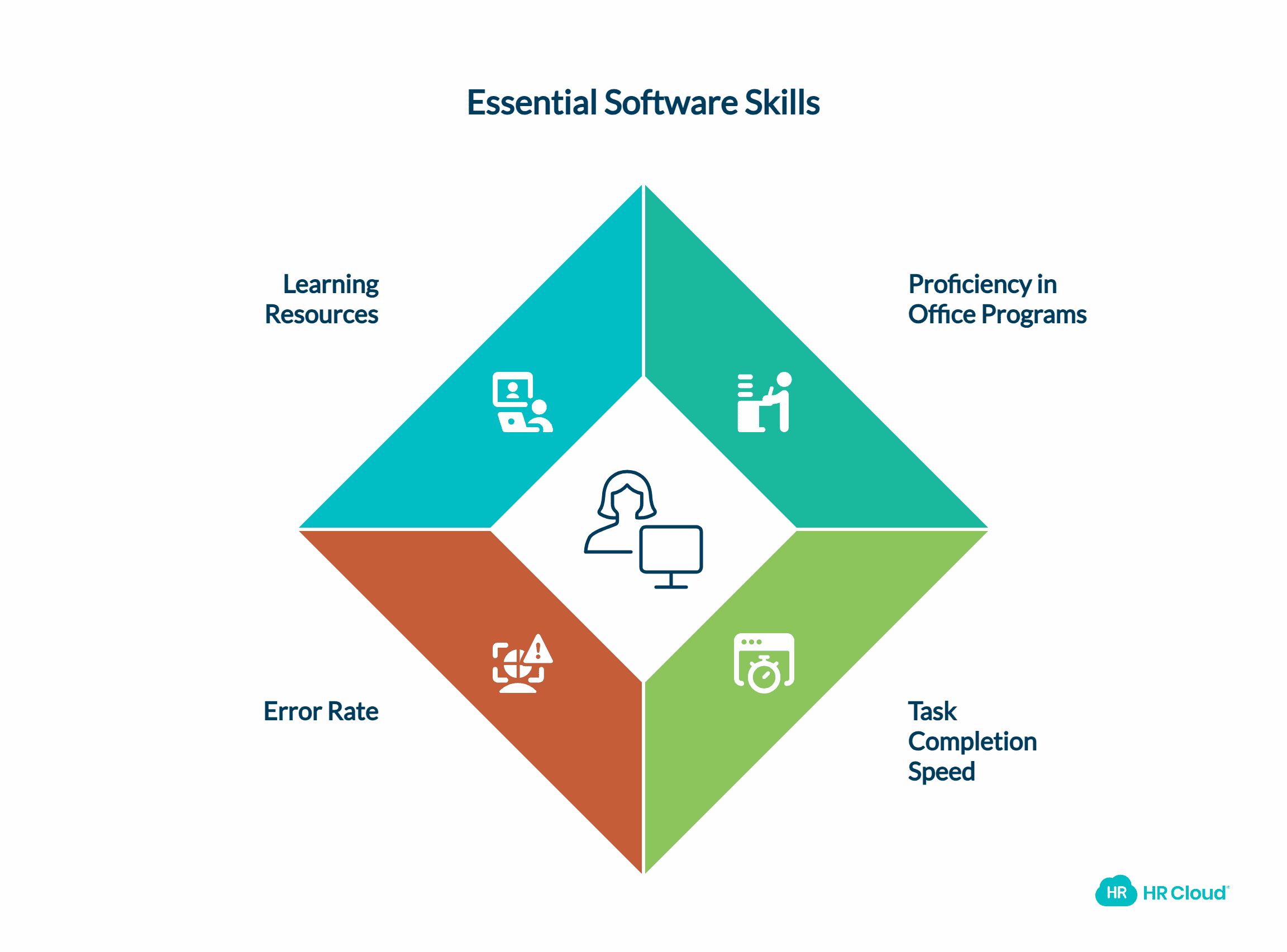
Hiring companies can use third-party agencies like Employtest to test your skills in software use. The assessment may include evaluating how you can complete a predetermined computer task. For example, you might be asked to log in and out of several programs within a set duration, enter simple information into an application, or utilize primary spreadsheet functions.
The purpose of these tests is to determine whether candidates have basic proficiency in typical office programs like Microsoft Word or Excel. A candidate who takes longer than others or makes more mistakes on these tasks is less likely to be hired.
Tip: Learn how to use Excel, Word, PowerPoint, and other standard software programs. You must know your way around these programs because many jobs require you to use them. If you don't have much experience using these programs, then practice using them on your own time. One good method is to watch video tutorials or ask an experienced person how to use a computer and navigate standard software.
5. Problem-Solving Skill Assessment
A problem-solving skills assessment can help measure whether an applicant can resolve issues that arise at work. Candidates should identify issues, propose potential solutions, and implement a method that fixes these problems as quickly as possible. There are various ways your skills can be tested using problem-solving assessments.
You must prove your ability to approach problems logically, break them down into manageable steps, and work through them systematically. Your employer will ask you to do a problem-solving exercise and explain how you solved it. For instance, HR may give you hypothetical workplace scenarios and ask how you would handle them effectively. Alternatively, you could be given a real workplace problem and asked what actions you would take in response or even how you would resolve a conflict in the workplace.
6. Critical Thinking Assessment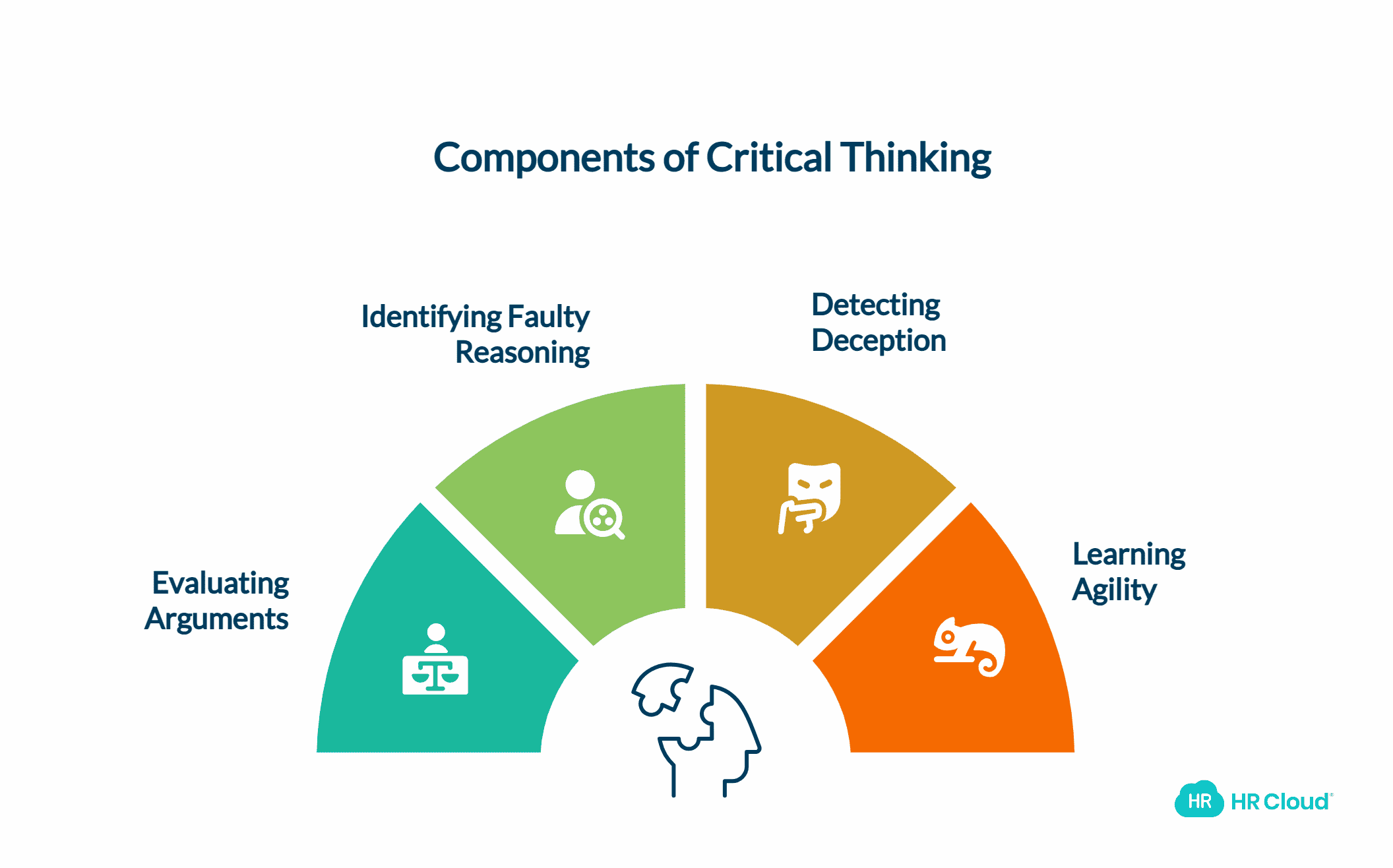
This standard skill test is designed to test your critical thinking abilities. The critical thinking assessment, also known as a cognitive ability test, evaluates an individual's ability to weigh both sides of an argument, identify faulty reasoning, and detect deception. The test may be presented in various ways and can involve written statements, reading comprehension, verbal interaction, or other communication tools. Since critical thinking is vital for success in so many jobs today, businesses often use critical thinking skills assessments as part of their hiring process.
Here, you may be asked questions such as:
-
Explain why it's important for employees on your team to stay updated on new technologies and information.
-
What techniques could you use to ensure that your team is always aware of technological advancements?
The hiring managers use this type of assessment to determine how well you can think logically, solve problems, and make connections between different pieces of information. They may also evaluate your learning agility, which is the ability to quickly adapt to new situations and acquire new skills.
7. Leadership Skills Assessment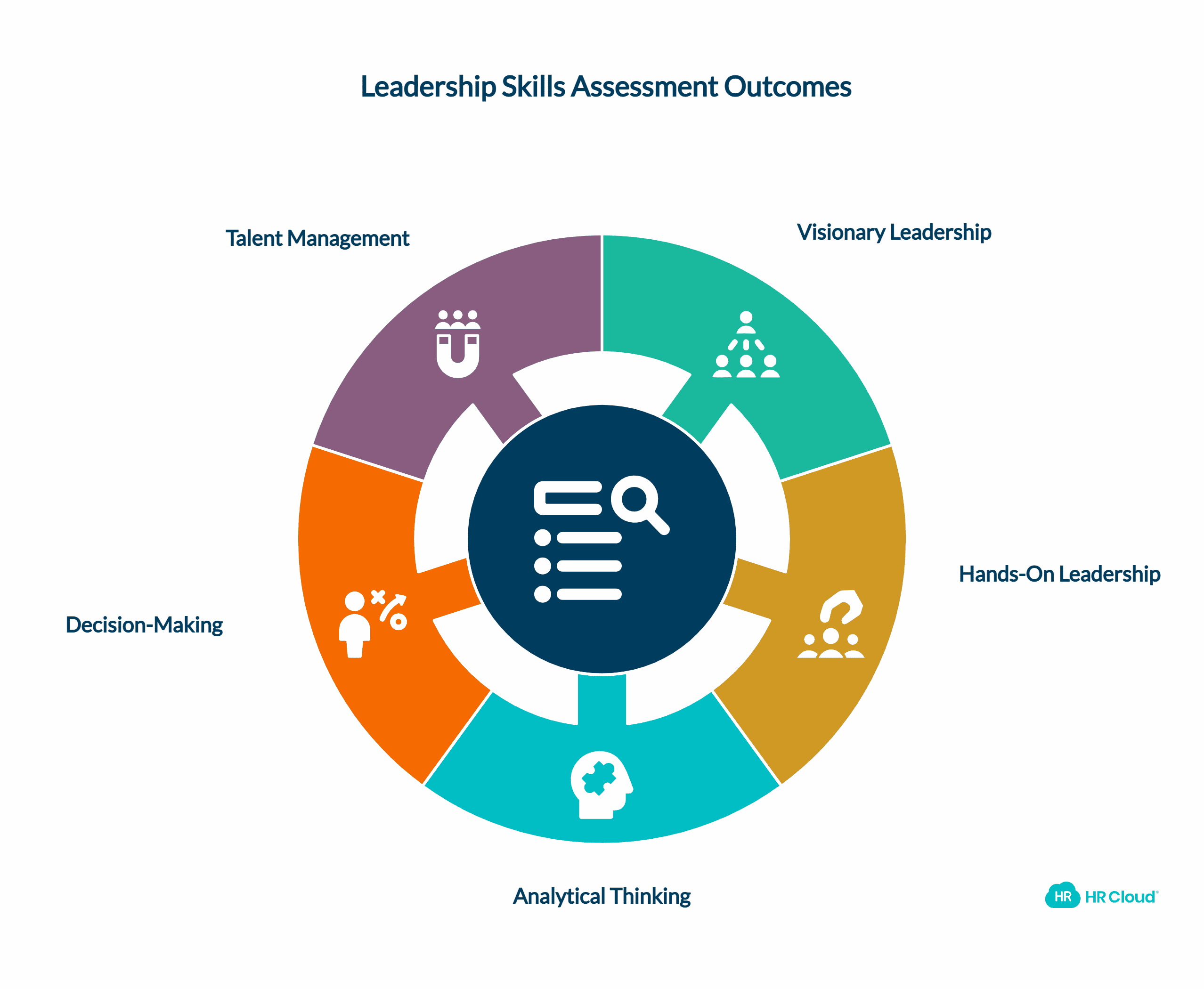
This assessment is meant to determine how well you handle yourself in a leadership role, whether your style is more visionary or hands-on. You'll usually be presented with a few scenarios and asked which you would choose and why. You may also be asked which characteristics of good leaders you possess. The leadership skills assessment is meant to measure what leadership qualities are innate and will develop over time instead of being taught.
The assessment may also evaluate an individual’s leadership skills, analytical thinking, and decision-making abilities. Some common questions asked during these assessments include:
-
How do you view and deal with change?
-
How effective are you at making decisions?
-
Are you good at getting people committed and involved in an idea?
-
Do you know how to hire talented professionals, develop and retain excellent talent?
8. Technical Skills Assessment
A technical skills assessment, also known as a hard skills assessment, tests your ability and competence to use tools and understand complex processes in an industrial environment. Standard tools used for these assessments include computer programs, spreadsheets, calculators, blueprints, technical manuals, and other systems.
During a technical skills assessment, you'll be given a project to complete in your own time that usually requires specific software or hardware. You'll then have a one-on-one session with an evaluator, who'll ask questions about your progress, assess whether your finished product meets stated requirements, and evaluate how proficient you are at using whatever was necessary for you to do your project.
9. Personality Assessment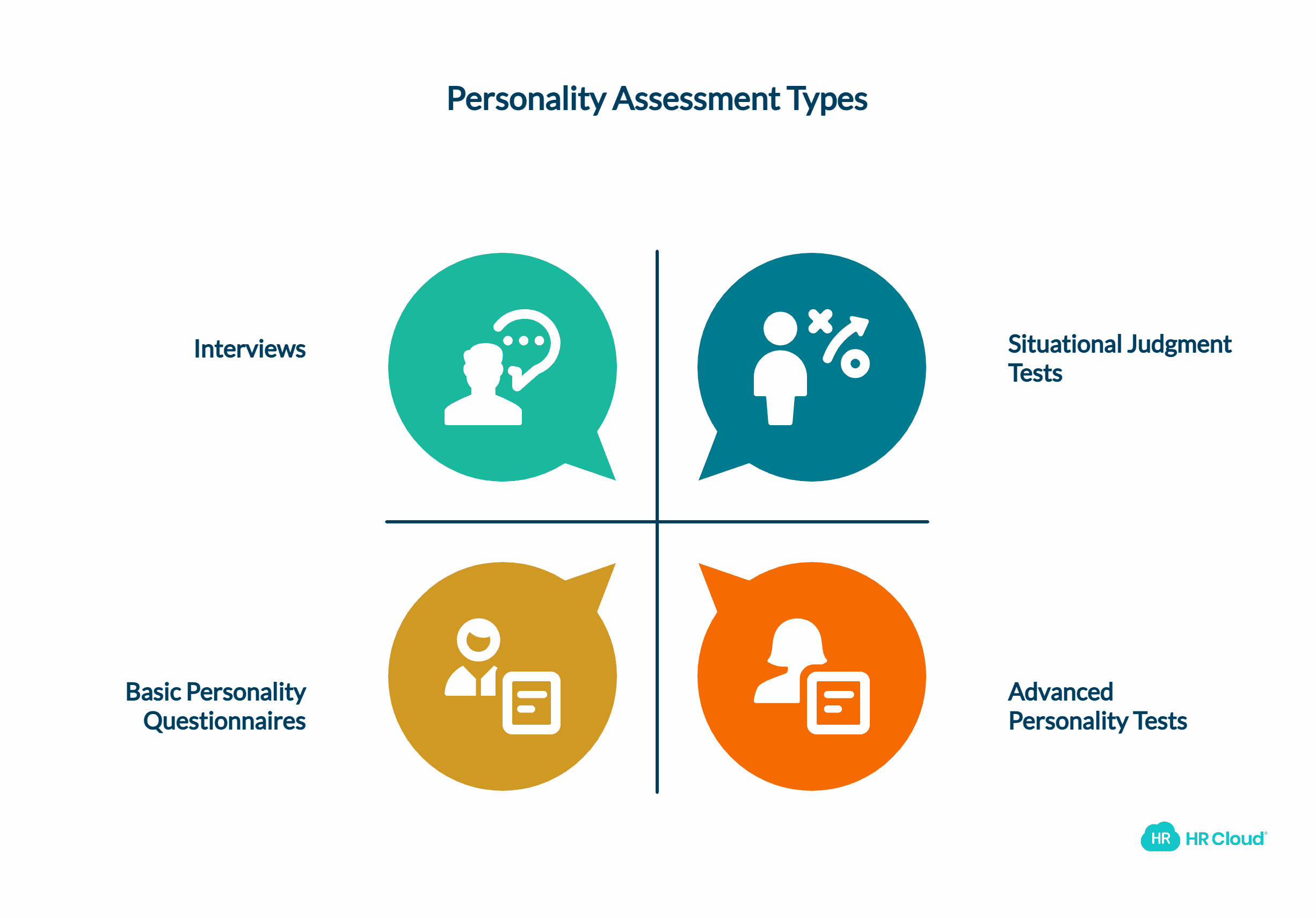
When a business hires you, they usually want to know if you’re a good fit for the job. Personality assessments ask you questions about your personality and values. This assessment helps an employer understand how their work environment will affect you and how you deal with stressful situations effectively. A typical personality assessment will consist of an interview and delve into how you deal with stress, work in teams, and your career aspirations.
Depending on where you're applying for a job and what type of company you're aiming for, there can be more than one type of personality test. You could receive one or more assessments depending on how many positions you're being considered for at a given company. Some questions will make you feel like you're being judged, while others may seem a little odd or out of place. Many companies also use situational judgment tests as part of their personality assessments to evaluate how candidates would respond to specific workplace scenarios.
10. Job-Specific Assessment
A job-specific assessment tests your knowledge of a specific job and demonstrates whether you have all the skills necessary for success. Your resume may be a powerful way to prove you have a lot of experience in your field, but it's a good idea to offer some proof that you can get stuff done. The hiring department will require you to take employment assessment tests, short quizzes that reveal job-specific skills.
Endnote
If you're applying for a job, there's no doubt you'll be facing some skill assessment tests or personality assessments during the hiring process. It may be a basic word puzzle, or personality quiz, or a more in-depth test with hundreds of questions and many different subsections. Whatever form your assessment takes, it's essential to know what skills tests you can expect to encounter to prepare yourself in advance.
 Discover how our HR solutions streamline onboarding, boost employee engagement, and simplify HR management
Discover how our HR solutions streamline onboarding, boost employee engagement, and simplify HR management
FAQ's
1. What types of pre‑employment assessments are most common?
Ans: Candidates and employers frequently ask which tests are used most. Common types include:
Aptitude or cognitive ability tests (e.g., verbal, numerical reasoning) – the most popular across roles.
Personality and integrity tests to assess cultural fit and honesty
Situational judgment tests (SJTs) simulate real work scenarios.
Technical and software‑use assessments, especially in roles requiring specific skills.
2. Are these tests predictive of job performance?
Ans: Yes—when tests are well‑validated:
Studies show cognitive ability tests and SJTs are good predictors of performance.
Legal and psychological standards require use of reliable, bias‑checked assessments.
3. Can pre‑employment tests discriminate or be biased?
Ans: This is a common concern:
Tests can create adverse impact if not scientifically validated for fairness.
Employers must follow legal guidelines (EEOC, Uniform Guidelines) ensuring assessments are job‑related, unbiased, and equitable.
4. How should candidates prepare for these assessments?
Ans: Candidates often search for prep tips:
Preparation depends on test type—practice cognitive drills, mock SJTs, software simulations.
General advice: rest well, maintain energy, manage stress on test day.
5. At what stage are assessments used in hiring?
Ans: Job seekers wonder when these appear in the process:
Typically administered after resume screening but before or alongside interviews.
For senior roles, extensive multi‑round testing may occur later; for entry roles, often used early to filter candidates.

Keep Reading
Why Healthcare Organizations Choose HR Cloud Over Alternatives
What is the Best Healthcare HR Software for Medical Organizations?
The Complete Guide to Remote Work Policy Compliance: Navigating Multi-State Tax, Legal, and Security Requirements in 2026
With 22.9% of US employees working remotely as of Q1 2024—up from 19.6% the previous year
Enterprise HRIS Implementation: Rippling vs HR Cloud Integration Capabilities and Deployment Success
Enterprise HR Software Implementation Comparison
Like What You Hear?
We'd love to chat with you more about how HR Cloud® can support your business's HR needs. Book Your Free Demo

Build a Culture of Recognition. Boost Engagement. Guaranteed.
Workmates empowers employees to stay informed, connected, and appreciated—whether they’re on the front line, in the office, or remote. Recognition drives 12x higher engagement.Trusted by industry leaders in every sector




Cut Onboarding Costs by 60%.
Take the confusion and follow-ups out of onboarding with automated workflows, digital forms, and structured portals—so new hires ramp faster 3X quicker.Trusted by industry leaders in every sector




